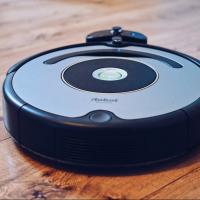3 Reasons Testers Shouldn’t Be Afraid of AI

Change is scary—especially when that change could impact your employment. During just about every recent software development innovation, testers have been put in the spotlight. And maybe more accurately, the actual role and relevance of testing has been put to the test.
How do testers contribute in agile? DevOps? Should testing tools and automation replace most things that manual testers do? At this point, testers are almost required to hold their breath whenever people start talking about new trends, and artificial intelligence is no different.
However, it’s important to note that even though testing has changed over the years, the need for human testers remains. And in the case of AI, that should still be the case. That’s according to Geoff Meyer, a test architect in the Dell EMC infrastructure solutions group, who outlined three main reasons testers shouldn’t be afraid of AI.
“First, analytics and AI requires data for it to even be useful. A lot of organizations still aren’t capturing the type of data that they need, and even if they are, it’s not in a form that’s readily useful,” Meyer explained in a recent interview with StickyMinds. “Second, we need to have a really good idea of the most impactful problems in our job in which to apply analytics or machine learning. To get this right requires a domain expert, which are the testers themselves.”
His last point focuses on the concepts that have come before AI, and how we need to look at what’s happened in the past to predict the future with any accuracy.
“Lastly, as a testing community, we’ve just recently been through a similar cycle where we feared a massive loss of jobs due to test automation,” he continued. “Most of us survived through that, mainly because we found out that we really only automated one task (albeit a time-consuming task) out of our job. And when we did, we realized that there was a whole lot more things that we could now get to, such as more exploratory testing, more automation for coverage, etc.
Testers will (and likely should) remain on their toes, but every new concept that’s been introduced in the software business still required smart, experienced testers to work properly. Menial tasks will continue to be handed off to machines and tools, but if you want your testing done properly, you still need real testers to assure quality.

